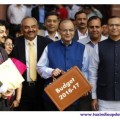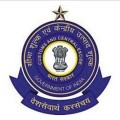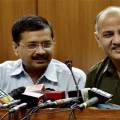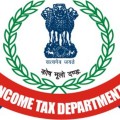Electoral Bond: A New System to Develop Transparency in Political Funding
In order to discourage the cash transactions and to bring transparency in the source of funding to political parties, it is proposed in finance Bill 2017 to amend the provisions of section 13A to provide for additional conditions for availing the benefit of the said section which are as under:-
- No donations of Rs.2,000/- or more is received otherwise than by an account payee cheque drawn on a bank or an account payee bank draft or use of electronic clearing system through a bank account or through electoral bonds. Under existing provisions of the Act, there is no restriction on receipt of any amount of donation in cash by a political party.
- Political party furnishes a return of income for the previous year in accordance with the provisions of sub-section (4B) of section 139 on or before the due date as per section 139. Under existing provisions of the Act, filing of the return is not a condition precedent for availing exemption under the said section.
- Further, in order to address the concern of anonymity of the donors, it is proposed to amend the said section to provide that the political parties shall not be required to furnish the name and address of the donors who contribute by way of electoral bond. Under existing provisions, political party shall keep and maintain record of voluntary contributions received in excess of Rs.20,000/- and the name and address of the person who has made such contribution.
- The detailed guidelines and rules for Electoral Bonds are under process.
Frequently Asked Question on Electoral Bond
1.What it Electoral Bond ?
The Electoral Bond is a financial instrument for making donations to political parties. These are issued by Scheduled Commercial banks upon authorisation from the Central Government to intending donors, but only against cheque and digital payments (it cannot be purchased by paying cash). These bonds shall be redeemable in the designated account of a registered political party within the prescribed time limit from issuance of bond.
2.What is effective date of provision under Income Tax Act, 1961 for Electoral Bonds?
The provisions of Electoral Bonds will take effect from 01.04.2018 and will apply to AY 2018-19. Electoral bond was announced in the Union Budget 2017-18. Required amendments to the Reserve Bank of India Act, 1934 (Section 31(3)) and the Representation of People Act, 1951 were made through Section 133 to 136 of Finance Bill, 2017.
3.What is the purpose of Electoral Bonds?
Electoral Bond is an effort made to cleanse the system of political funding in India. The scheme of electoral bonds addresses the concerns of donors to remain anonymous to the general public or to rival political parties. This reform is expected to bring about greater transparency and accountability in political funding, while preventing future generation of black money.
4.Whether other mode of funding to Political Parties will remain in force?
As proposed in Finance Bill, 2017, the maximum amount of cash donation that a political party can receive is stipulated at Rs. 2000/- from one person. The Political parties will be entitled to receive donations by cheque or digital mode from their donors. Every political party would have to file its return within the time prescribed in accordance with the provision of the Income-tax Act. Existing exemption to the political parties from payment of income-tax would be available only subject to the fulfilment of these conditions.
Extracted from Budget 2017
Finance Bill, 2017 – Amendment of section 13A.
11.In section 13A of the Income-tax Act, with effect from the 1st day of April, 2018,—
(I) in the first proviso,—
(i) in clause (b),—
(A) after the words “such voluntary contribution”, the words “other than contribution by way of electoral bond” shall be inserted;
(B) the word “and” occurring at the end shall be omitted;
(ii) in clause (c), the word “; and” shall be inserted at the end;
(iii) after clause (c), the following clause shall be inserted, namely:—
‘(d) no donation exceeding two thousand rupees is received by such political party otherwise than by an account payee cheque drawn on a bank or an account payee bank draft or use of electronic clearing system through a bank account or through electoral bond.
Explanation.––For the purposes of this proviso, “electoral bond” means a bond referred to in the Explanation to sub-section (3) of section 31 of the Reserve Bank of India Act, 1934.’;
(II) after the second proviso, the following proviso shall be inserted, namely:—
“Provided also that such political party furnishes a return of income for the previous year in accordance with the provisions of sub-section (4B) of section 139 on or before the due date under that section.”.
Budget Speech of Finance Minister on Electoral Bond
Transparency in Electoral Funding
164. India is the world’s largest democracy. Political parties are an essential ingredient of a multi-party Parliamentary democracy. Even 70 years after Independence, the country has not been able to evolve a transparent method of funding political parties which is vital to the system of free and fair elections. An attempt was made in the past by amending the provisions of the Representation of Peoples Act, the Companies Act and the Income Tax Act to incentivise donations by individuals, partnership firms, HUFs and companies to political parties. Both the donor and the donee were granted exemption from payment of tax if the accounts were transparently maintained and returns were filed with the competent authorities. Additionally, a list of donors who contributed more than `20,000/- to any party in cash or cheque is required to be maintained. The situation has only marginally improved since these provisions were brought into force. Political parties continue to receive most of their funds through anonymous donations which are shown in cash.
165. An effort, therefore, requires to be made to cleanse the system of political funding in India. Donors have also expressed reluctance in donating by cheque or other transparent methods as it would disclose their identity and entail adverse consequences. I, therefore, propose the following scheme as an effort to cleanse the system of funding of political parties:
a) In accordance with the suggestion made by the Election Commission, the maximum amount of cash donation that a political party can receive will be `2000/- from one person.
b) Political parties will be entitled to receive donations by cheque or digital mode from their donors.
c) As an additional step, an amendment is being proposed to the Reserve Bank of India Act to enable the issuance of electoral bonds in accordance with a scheme that the Government of India would frame in this regard. Under this scheme, a donor could purchase bonds from authorised banks against cheque and digital payments only. They shall be redeemable only in the designated account of a registered political party. These bonds will be redeemable within the prescribed time limit from issuance of bond.
d) Every political party would have to file its return within the time prescribed in accordance with the provision of the Income-tax Act.
Needless to say that the existing exemption to the political parties from payment of income-tax would be available only subject to the fulfilment of these conditions. This reform will bring about greater transparency and accountability in political funding, while preventing future generation of black money.







